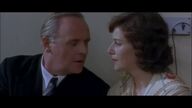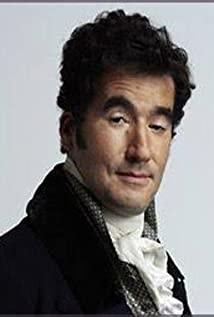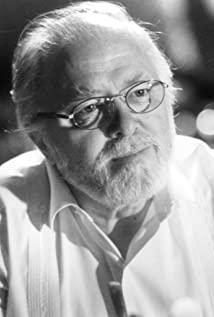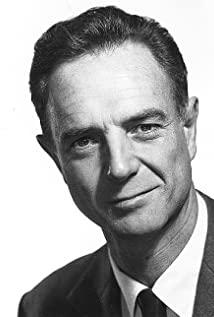Author: Chen Yunlin [Gate of Faith/ www.GODoor.net ]
A high-level film "Shadow Land" was released in Taiwan a few years ago, but it was released soon, probably because of Taiwan’s influence on "Shadow Land". The protagonist CSLewis is too strange for the sake of it!
CS Lewis is a well-known writer in English literature. He is a professor at Oxford University. He is good at writing and can speak good ways. Every speech attracts thousands of people to listen to and respectful notes. His best speech topics are: "The meaning of suffering", "Is miracles possible?" "What is love?", and then affirm the omnipotence and love of God.
In fact, CSLewis's belief process is very roundabout. He moved from traditional Christianity to strict doctrinal requirements, to spiritual mysticism, to materialistic atheism, to specialize in Buddhism, and finally to Christianity, and then to become a defender of Christianity.
CS Lewis has followed a master of logic, so he attaches great importance to rational thinking, and his defensive way is also best at using rational thinking. This can be seen from his four books, "As Christianity," "The Mystery of Pain," "Miracle," and "Man's Disappearance". These books deal with the problems of the ages: Why does God exist? Why is this God necessarily the God of the Christian faith? What is the ethics of Christianity? What are the attributes of God including the Trinity? If God is all-powerful and all-good, why is there evil? Why is there pain? Why does the created man fall? Will there be miracles in the scientific generation? What is the crisis of the scientific generation? He is quick to respond, can quickly point out the illogical aspects of other people's statements, and is quite logical in his own statements. In the book "As Christianity", we will find that he is the purpose of inheriting "Thomas Aquinas" moral argument, but using modern examples. CS Lewis quite emphasizes that Christian faith is in line with rationality. On the contrary, atheism or pantheism and polytheism cannot withstand the test of rational thinking.
Although CS Lewis’ logical speculation is so rigorous and unremarkable, he and the professors at the school love to argue with him, saying that he is facing a complicated problem with a simple answer (logic). CSLewis dares to face challenges and often wins in eloquence. However, the most famous work of CS Lewis that has made a sensation abroad is his fairy tale "A Fairy Tales from There". In this set of stories, the "Lion King and Witch Wardrobe" is the most famous. This whole set of fairy tales is actually a description of his eloquent and unshakable faith in a fairy tale metaphor.
So at the beginning of the "Shadow Land" movie, we saw several professors from Oxford University stand with him, talking about the "Lion King and Witch Wardrobe" in his sub-fairy tale collection that is illogical: How can a single bachelor old professor's house? Have a woman's fur coat? Anthony Hopkins, who plays CSLewis, does not directly answer this question, but instead talks about the world in the closet completely: "That is a world full of Magic..."
Until the age of sixty, CSLewis's rational thinking Suddenly faced a cruel test. He fell in love with a poetess from the United States named Joyce (played by Deborah Winkie), and experienced her death. This poetess used her life to interpret what CS Lewis is best at. She was abandoned by her husband, with a child, Jewish, and bankrupt. She was living in misery, but she never gave up on love, facing her miserable life bravely and optimistically.
The film describes the dialogue between CS Lewis and Joyce when they meet. Joyce said: "Experience is important." CSLewis said: "Knowledge is important." Joyce said: "Books make people safe." The implication is that the knowledge about love and suffering that you learn from books, or It is untrue to argue against the heroes, because the person involved has no experience at all.
CS Lewis actually fell in love with her, but didn't know that he was in love with her. He did everything possible to help her, and even faked her marriage so that she could stay in the UK. However, he didn't realize how much he loved her until the moment he heard that she had the terminal stage of bone cancer. So he decided to marry her again, an unrepentant marriage contract officially made by God in front of people.
Joyce has experienced suffering thoroughly in her life. She mockingly said that the suffering she experienced was not compromised at all. However, her bravery and optimism, and her familiarity with suffering, made her more prepared than CSLewis in the face of suffering and death. The movie describes a time when the two of them were traveling happily. At that time, Joyce was well under control. Joyce talked to CSLewis about death in a happy atmosphere. CSLewis didn’t want to talk about it. Joyce said to him, “In the happiness now, there must be Contains future pain, this is a life’s deal.” Later Joyce relapsed and was irreparable. Faced with the painful CS Lewis, Joyce also persuaded him: “You must let go and let me go,” Joyce’s last words before death It is: "I am at peace with God".
On the other hand, CS Lewis began to experience his most familiar "true love", "suffering and death", "Does God exist?" "Is God Almighty and Good?" "Why God?" Ignore the suffering?" "Why is there no miracle?". As Joyce said, books, knowledge, and reason are "safe", but experience is extremely painful. All the speeches of CS Lewis, the true meaning of faith after word processing, when he discovered that he had to "live out", but in the process, his faith collapsed. This is the content of his later work "A Grief Observed".
"Qing Qing RuMe" article is plain and plain, like a small prose, completely lost his always sharp wisdom, even hidden doubts, sadness, anger and injustice in the article, and never gave him the same affirmation in the past. s answer. However, this book can be said to be his greatest work. If you haven't finished reading this book, you will not be able to fully understand the meaning of all the wonderful articles of CSLewis. Because of this book "Qing Qing Ruhui", let us have a new perspective on CSLewis. CS Lewis found himself completely silent about reason after trying his best to reason. Faith is only left in the simple and completely unspeakable state of "revelation and faith." He said: Now the arguments are useless, and the days slowly pass, and God still comforts him.
Why did God allow CS Lewis to experience a "question" that he had argued for countless already knew the answer after he was 60 years old?
CS Lewis has a description of Xintianxindi in his famous fairy tale work "The Last Battle": "This world is the Shadow of Land of the future Xintianxindi."
This also happened to explain his life. Reasonable knowledge is the Shadow of Land of real experience. The truth is that it can be burned and not destroyed and can still survive. It is impossible to speculatively prove the "confidence" that is said. CS Lewis's life is a mystery in the hands of God. God first asked him to write what he was going to experience, and then let him learn the mysteries of faith from the experience. He is a layer of Shadow of Land in his life, and his encounter with Joyce in Xintianxindi after his death has made the present world, including "Qing Qing Ru Met", all Shadow of Land.
The movie "Shadow Land" describing this experience of CSLewis, the original text is "The Shadow of Land", which is derived from the shadow of Land in "The Last Battle". CSLewis's literary inspiration for this passage is from the Bible: "We are now It is as if looking in a mirror, blurry, and then I will face each other. What I know now is limited, and then I will know all of it, just as the Lord knows me.” (1 Corinthians 13:12)
Note: The Chinese translation of CS Lewis’s works is as follows: "The Mystery of
Pain, Christian Literature and Art Publishing House", "The
Four Kinds of Love Song Publishing House", "
So Christian Association of Southeast Asian Theological Seminary", "
Qing Qing Qing Ruhui Yage Publishing House" Naya
Fairy Tale Collection Christian Literature Publishing House
Naked Yan Yage Publishing House
View more about Shadowlands reviews











